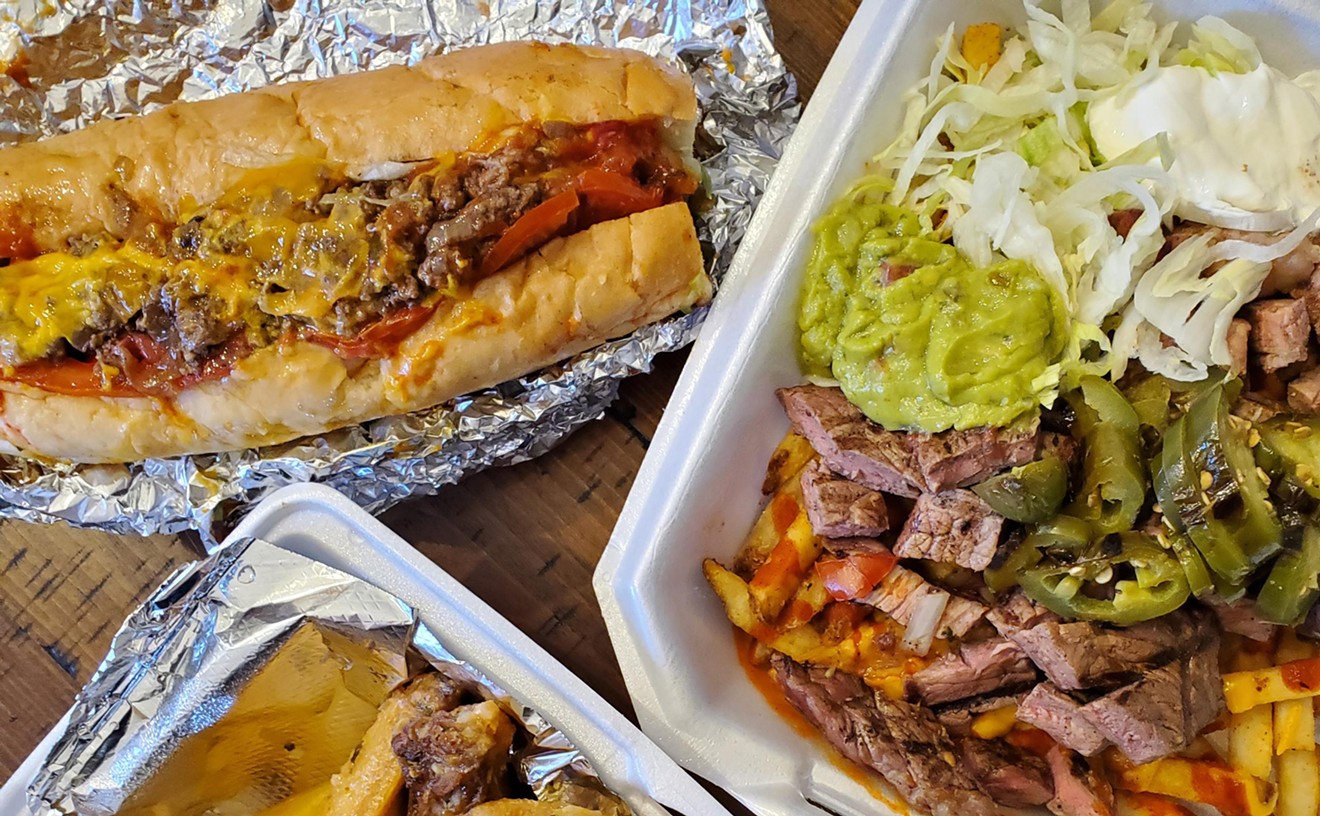Folks who live around the Jolly Rancher factory in Wheat Ridge have been enjoying such olfactory memory triggers for years. But they can soon kiss them goodbye: Hershey Foods, which bought Jolly Rancher in 1997, will be shutting the plant later this year. In the process, Hershey will put several hundred people out of work and end one of Colorado's tastiest traditions.
Already, the Jolly Rancher legacy is a museum piece -- in fact, it's the subject of a current display at the Golden Pioneer Museum (923 Tenth Street, 303-278-7151). The world's favorite hard candy got its start in Golden back in 1949, at a little shop Bill and Dorothy Harmsen opened on Washington Street. They turned their Wheat Ridge barn into a factory in 1951; today that facility produces almost a million pounds of hard candy every week, a local success story that rivals that of the Coors Brewing Company. But it's not sweet enough to keep the Hershey investor-relations folks happy.
"It's so, well, corporate," museum director Michele Zupan says of the decision to shut the plant.
For Bob Harmsen, one of the founders' three sons and a former Jolly Rancher president, closing the plant is a flawed business decision. "I think it's going to end up killing the brand," he says. "It's losing all of its personality. Customers from all over the country would come to Denver to tour the plant. It had personality."
Not only are Coloradans losing a favorite landmark, hundred of workers losing jobs and the state's sugar-beet growers losing their major customer, but the candy, which will be manufactured at a yet-to-be-announced Hershey's plant, could lose its unique flavor. "In Colorado, you can cook without vacuum cooking," Bob Harmsen points out. "There's more moisture in this hard candy. You move it, and it's going to be a different product."
Zupan is full of details about the original product, which made its debut shortly after Dorothy Harmsen decided to sell ice cream and homemade chocolate confections out of the Golden shop. "All of her life, she was a gutsy lady," Zupan says. And after the Harmsens came up with Fire Stix, hard candies with an intense cinnamon spank that won fans of all ages, things got really jolly. They chose the Jolly Rancher handle as a way to combine a Western feel with the glee the Harmsens wanted customers to feel while eating their candy.
Fire Stix led to the Jolly Rancher fruit flavors that branded minds and mouths across America. The candies -- made by "Candy Cowboys" and "Candy Cowgirls" -- were packaged with clever art by Bob Cormack, a Denver native and Disney artist. Each box contained a small card with a quote. "Rudeness is a little man's imitation of power," one read. Declared another: "When all think alike, no one thinks very much." For a short time in the '50s, the Harmsens sold Jolly Rancher franchises across Colorado and in other Western states. But in 1967, they sold the firm to Beatrice Foods. Bill Harmsen continued as president until 1977, when Bob took over; he stayed with the company through several sales, until 1990.
The Golden exhibit serves as testimony to the Harmsens' vision, as well as to their Western-style marketing savvy and knack for satisfying a sweet tooth. Included in the show's treasures are vintage examples of Cormack's art; photos of the original Golden store (it burned down in the '70s), the first "Sugar Bar Ranch" house at the Wheat Ridge factory and members of the Harmsen family gathered among the Candy wranglers; and an empty box that once held the company's original chocolates. "People still pine for those," Zupan says. Also included is marketing memorabilia that dates back to Rancher-sponsored rodeo teams and hot-rod fleets, including a picture of the company's souped-up fire engine that spewed cinnamon oil at every race. "Made the whole race track smell like cinnamon candy," Bob Harmsen recalls. "Candy is the fun food business, and we had fun selling it."
People who visit the exhibit have been recording their feelings about Jolly Rancher in a guest book. "I love Jolly Rancher," one kid scribbled. "Living in Arvada, we relish the days that the perfume of Jolly Rancher drifts over our area," another visitor wrote. "Did you know that the National Headache Foundation recommends Jolly Ranchers as a treatment for migraines?" asked a third. "They sell them like crazy in jail," another guest noted.
"It was always wonderful to drive down Ward Road and smell the flavor of the day," one fan concluded. "Jolly Rancher closing down is terribly sad."
The decision to close the plant came as a blow to the elder Harmsens, who learned of it through the media, Bob Harmsen says. (Bill and Dorothy, now both in their nineties, still live in Golden.) "They own it; they can do what they want with it," Bob says of Hershey. "But I'm hurt. You never expect something like this would get closed down and moved to Canada. It's sad to see 270 people get put out on the street. It's sad in American business to see these things."
While a Hershey spokeswoman declined to comment on the rumor that Jolly Ranchers will be manufactured outside the United States, she confirmed that the Wheat Ridge factory will close in the fourth quarter of this year. The Pioneer Museum's Jolly Rancher exhibit was supposed to close next month, but the museum has extended the run to meet visitor demand.
"We'll keep it open until they go," Zupan says. "When they start closing down, we'll start taking this down, too. We're very sad to see them go."










